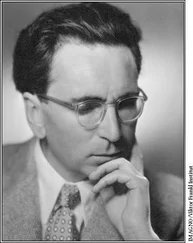Bacon climbed the stairs and settled into the immense suite. The luxurious appointments of the Nazi days were long gone, but they were nevertheless the most sumptuous accommodations Bacon had been offered in recent months. Although it did seem like some kind of bad joke that the walls now surrounding him had stood guard over the dead body of Adolf Hitler. Who would have ever thought? What would Elizabeth say? Oh … it was useless to even think about that: For better or for worse, Elizabeth wanted nothing to do with him. Bacon flung himself onto the bed, but it produced an illicit, morbid sensation, as if he were desecrating a sacred space. The idea of urinating on all the furniture crossed his mind, but then he thought better of it: Why should the hotel’s housekeeping staff have to pay for his capricious behavior? He got up and walked into the bathroom. He studied the spacious tub, the sink, the toilet, the bidet. Hitler’s greasy skin had surely rubbed up against all those shiny surfaces. He could just picture Hitler, naked and defenseless, admiring his flaccid member before submerging himself in the water; Bacon could even see the Führer’s defecations, sliding down the hole that he now found himself peering into….
Bewildered, Bacon studied himself in the mirror. Two large circles under his eyes dominated his face; not only had he matured, but he seemed to have grown old. He ran his hands through his hair and, in an attempt to concentrate on something, located one or two gray hairs and decided they were proof of his imminent decline. He was no longer a boy wonder, a child prodigy, or any of those things that had always kept him at the margins of society. As he began to take off his uniform, he mused at how very different it was from the one he used to wear. Trapped within the privileged walls of the Institute for Advanced Study in Princeton, he had very nearly married a woman he didn’t love. There, his life had been a sheltered one, protected from the outside world, just like that of an insect pinned to the inside of a glass case in a museum. His departure from Princeton had been nothing less than a spectacular scandal, but it was also a miracle, a revelation. For the first time ever he sensed that life was a tangible presence that he could feel upon his skin, far from all the desks and blackboards, and the tedium of all those conferences and colloquia. He never would have dreamed that he would derive such satisfaction as a soldier fighting for his country, but now he was certain that he had made the right choice. He would have plenty of time, at some point in the future, to return to the world of science—but then it would be as a hero, not as a fugitive.
He turned on the faucet and waited for the hot water to pour out, but nothing more than a weak stream of lukewarm droplets emerged from the tap. “The Führer wouldn’t have stood for this,” he laughed to himself, and proceeded to bathe with the help of a towel and a freshly opened, pungent cake of soap. When he was finished, he went back to the bed and, before he knew it, fell into a deep sleep, though the unsettling dream he had nearly asphyxiated him: There he was, in the middle of a dark, rainy forest, when suddenly Vivien appeared out of nowhere. Vivien, the young black woman from Princeton with whom he had maintained a secret relationship for so long. Ruefully, he noted that his life was strewn with puddles and potholes; in fact, it seemed to have evolved into something more like a moldy, threatening swamp. In the dream, he tried to kiss Vivien when suddenly he found himself face-to-face with his ex-fiancée Elizabeth instead. “There’s lipstick on your mouth,” she said to him, and proceeded to wipe it off with a handkerchief. “You shouldn’t do that,” she reprimanded him. “It’s bad, very bad.” By the time Bacon managed to extricate himself, it was too late: Vivien had already disappeared.
It was almost three in the afternoon when he awoke. He kicked himself: This was the worst possible thing he could have done. Not only had he neglected his work, but he had done so thrashing about in Hitler’s bedsheets! He quickly put on his clothes, scurried down the stairs, and ran as fast as he could to the pressroom at the Palace of Justice.
A few hours later, he was informed of the news which would soon travel to the rest of the world like an infectious disease. From the crumbling streets of the ancient medieval burgh, the communiqué was sent out that the Reichsmarschall Hermann Goering—the highest-ranking Nazi prisoner sentenced by the International Military Tribunal—had been found dead in his cell a few hours before Sergeant John Woods was to carry out the hanging for which he had been sentenced. According to the rumors, Goering had ingested a capsule of cyanide, a cruel, eleventh-hour joke which allowed him the last laugh over the judges’ decision. “One day there will be statues of me in every plaza and little figurines in my likeness in every home in Germany,” the Reichsmarschall had once arrogantly proclaimed, so certain he was that he would be redeemed in the eyes of posterity. After his death, a stack of letters was found in his cell (number 5, cell block C), all of them written with the same small, precise lettering. The first of these letters explained the reasons for his suicide:
To the Allied Control Council: I would have had no objection to being shot. However, I will not facilitate the execution of Germany’s Reichsmarschall by hanging! For the sake of Germany, I cannot permit this. Moreover, I feel no moral obligation to submit to my enemies’ punishment. For this reason, I have chosen to die like the great Hannibal.
On another sheet of paper, addressed to General Roy V. Rickard, member of the Quadripartite Commission in charge of supervising the executions, Goering confessed that he had always kept a capsule of cyanide close by. He also wrote a letter to his wife: “After serious consideration and sincere prayer to the Lord, I have decided to take my own life, lest I be executed in so terrible a fashion by my enemies…. My last heartbeats are for our great and eternal love.” Henry Gerecke, the Protestant pastor who ministered to the German prisoners, was the last recipient in this small pile of letters. In his note to Gerecke, Goering asked for pardon and explained that the motivation for his actions had been purely political.
The next day, Gunther Sadel told Bacon all he knew about the matter. At 9:35 the previous evening, October 14, the guard had informed the necessary officials that the prisoner was resting peacefully in his cot after Dr. Ludwig Pflücker had administered him a sleeping pill. Just like every night, a soldier was stationed at the door to Goering’s cell, specifically to keep close watch over him until the early dawn; after all, it was to be his last night under prison surveillance. Colonel Burton Andrus, the chief officer of the prison, had suspended all external communications with the outside world as a special precaution. The guards’ only source of outside contact was a telephone line connecting them to the staff at the central offices, who continually updated them, inning by inning, with the score of the World Series, which was under way at the time.
All of a sudden, someone began calling for Pastor Gerecke’s aid. It was the voice of Sergeant Gregori Timishin: Something was wrong with Goering. The chaplain ran toward the cell of the once plump Reichsmarschall, but when he arrived, he knew instantly that any resuscitation attempt would be pointless. Goering’s face, which had seduced so many thousands of men and women, the same face whose glare had inspired both fear and fury among his captors, was now focused on a spot somewhere far off in the distance. Only one obstinate eye remained open. His rosy complexion had turned greenish, and his body, though twenty-five kilos lighter since his imprisonment, lay like a bale of hay, impossible to move. The cell smelled like bitter almonds. Gerecke took his pulse and said, “Good Lord, this man is dead.” By the time the other members of the Joint Staffs arrived, it was already too late: Out of either cowardice or pride, Goering had foiled them.
Читать дальше












